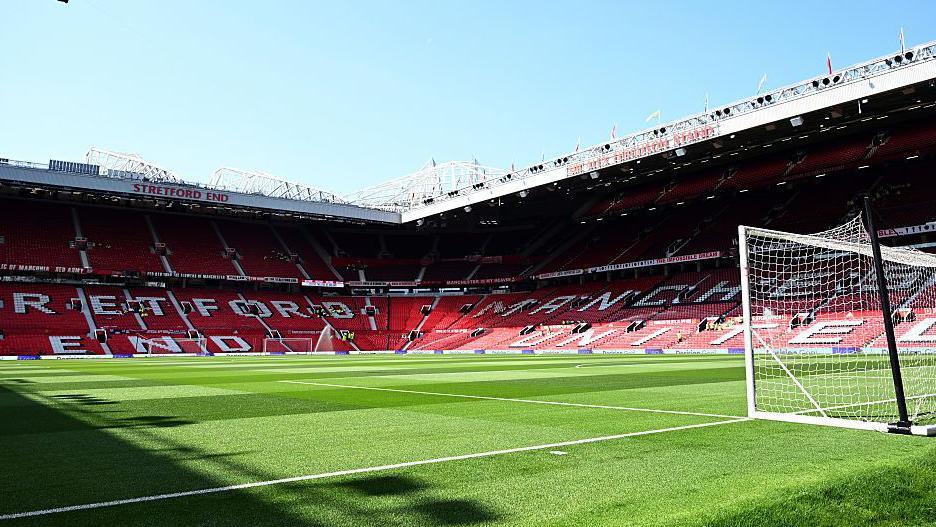Manchester United Announce Record Revenue Amid On-Field Challenges
Manchester United have defied their turbulent on-pitch performance by posting a record revenue of £666.5 million for the 2024-25 financial year. This milestone arrives despite the men’s first team finishing 15th in the Premier League last season—their worst league position since their relegation campaign in 1973-74. The financial success underscores the club’s commercial resilience and global appeal, even as fans grapple with the stark contrast between boardroom prosperity and sporting decline.
The Drivers Behind Manchester United’s Record Revenue
The club’s commercial revenue soared to an all-time high of £333.3 million, largely fueled by the first year of their landmark five-year front-of-shirt sponsorship deal with Snapdragon. Matchday revenue also hit a record £160.3 million, reflecting unwavering fan attendance at Old Trafford despite the team’s struggles. These figures highlight United’s unmatched ability to monetize their brand, even during periods of sporting underperformance.
Chief Executive Omar Berrada emphasized the club’s resilience: “To generate record revenues in such a challenging year demonstrates the enduring strength of Manchester United. While we recognize the need for improvement on the pitch, this financial foundation allows us to build sustainably for long-term success.” Berrada avoided direct commentary on the team’s winless start to the 2025-26 season but reiterated a commitment to holistic progress.
Financial Discipline and Cost-Cutting Measures
United’s £33 million overall loss marks a significant 70.8% reduction from the previous year’s £113.2 million deficit. The club attributes this improvement to aggressive cost-cutting initiatives, including a contentious reduction in staffing from 1,100 to 700 employees over the past two years. While critics have lambasted the cuts—particularly amid poor results—the club argues they are essential to freeing resources for squad investment while complying with Premier League Profit and Sustainability Rules (PSR) and UEFA Financial Fair Play (FFP) regulations.
Player wages dropped by £51.5 million to £313.2 million, driven largely by the squad’s 25% salary reduction clause after failing to qualify for the Champions League. Additionally, the accounts include £36.6 million in “exceptional items,” covering compensation payments to former manager Erik ten Hag, interim boss Ruud van Nistelrooy, and technical director Dan Ashworth.
Despite these headwinds, United project a robust turnover of £640–660 million for the 2025-26 fiscal year, signaling confidence in their commercial strategy.
Commercial Dominance and European Comparisons
The Snapdragon partnership has propelled United back above arch-rivals Liverpool in commercial revenue—a critical bragging right in the fiercely competitive Premier League landscape. Deloitte’s January 2025 Football Money League ranked United fourth globally (£651 million revenue), behind Real Madrid (£883 million), Manchester City (£708 million), and Paris Saint-Germain (£681 million). This commercial muscle ensures United remain financial heavyweights, though translating this into on-field success remains the club’s greatest challenge.
Broadcasting Setbacks and European Absence
A £48.9 million downturn in broadcasting revenue—stemming from last season’s Europa League participation instead of the Champions League—serves as a stark reminder of the financial cost of underperformance. The absence of European football entirely in 2025-26 will exacerbate this gap, placing greater pressure on commercial and matchday revenue streams to offset losses.
Addressing Manchester United’s Growing Transfer Debt
United’s debt profile continues to draw scrutiny. Long-term debt, originating from the Glazers’ 2005 leveraged buyout, remains at $650 million (£471.9 million as of 30 June). Meanwhile, borrowings from the club’s revolving credit facility surged to £165.1 million from £35.6 million, reflecting short-term liquidity demands.
Perhaps most concerning is the escalating transfer debt. While paying fees in installments is common across football, United’s “trade and other payables” jumped to £564.6 million from £424.9 million year-on-year, a figure that includes outstanding transfer obligations. Since June, the club has invested £156.8 million in signings like Bryan Mbeumo (Brentford), Benjamin Sesko (RB Leipzig), and Senne Lammens (Royal Antwerp). Officials defend the spending as necessary to reverse the team’s decline, but skeptics question the sustainability of such outlays without consistent Champions League income.
The Road Ahead: Balancing Ambition with Stability
Berrada struck an optimistic tone regarding the club’s trajectory: “As our cost-reduction program matures, we see substantial potential for improved financial performance—which directly supports our ultimate goal: winning trophies.” However, the path forward is fraught with challenges. Bridging the gap between commercial supremacy and sporting relevance will require shrewd recruitment, tactical acumen, and perhaps patience from stakeholders fatigued by a decade of false dawns.
For now, Manchester United’s record revenue stands as a testament to their global stature. Yet, for fans and investors alike, the true measure of success will always be silverware, not spreadsheets.
